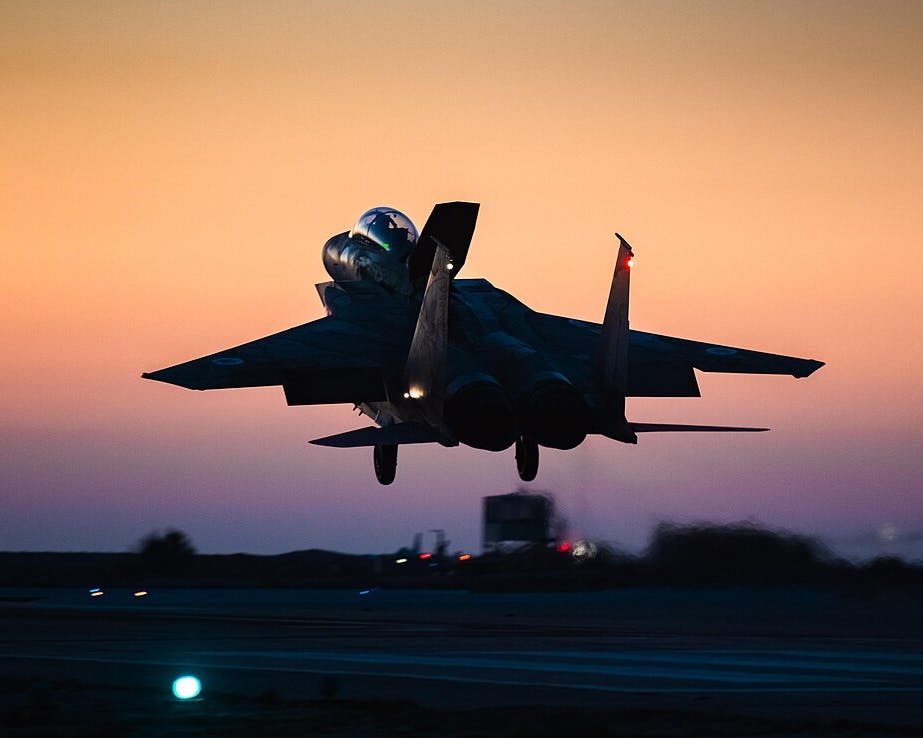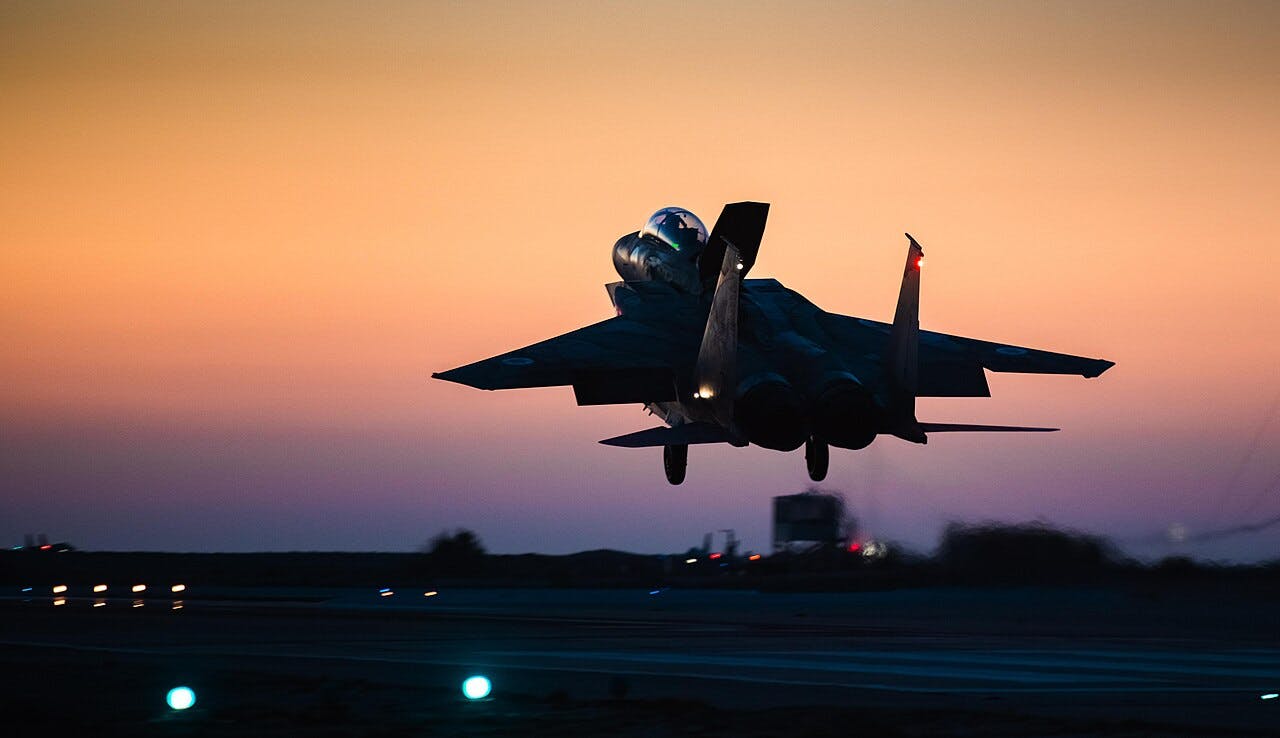Rising Lion: How Israel Seized Control of Iran’s Skies

Tuesday, 17 June 2025 | On June 13, 2025, as Tehran slept, the distant hum of Israeli F-35 jets gradually swelled to a roar that shattered the calm. Operation Rising Lion had begun, an audacious attack that brought 200 aircraft to strike deep into Iran, targeting missile launchers, nuclear sites and key military figures. By dawn, Iran’s air defenses were already shredded, and Israel had almost achieved total dominance of its rival’s airspace. This was a triumph of strategy, technology and sheer boldness—bolstered by clever modifications like fuel-preserving and stealth-optimized drop tanks on Israel’s F-35s. Here’s how Israel pulled off this feat, what it may mean, and why Iran is struggling to get off the ropes.
The masterstroke of Operation Rising Lion was Israel’s elaborate misdirection, a multi-layered ruse that left Iran unprepared for the assault. For days, Israel fed Tehran false signals: media leaks suggested Prime Minister Netanyahu was preoccupied with proposals by key Knesset members to dissolve the government, while a fabricated US–Israel rift over a “phantom” diplomatic trip by a US envoy was left unrefuted. Most crucially, Israel amplified chatter about delaying strikes until after US–Iranian nuclear talks, which had been set for June 15, 2025, lulling Iran’s leadership into a belief they had more time. Instead, on June 13, over 200 Israeli jets—F-35s, F-15s, and F-16s—unleashed a ferocious assault, hitting over 100 targets, including Iran’s S-300 and S-400 air defense systems, rendering its skies defenseless. The F-35I Adir, Israel’s stealth workhorse, roamed undetected for hours, striking as far as Mashhad, 2,300 kilometers (1,429 miles) away, where it obliterated an Iranian military airport and refueling plane—a historic first.

To reach Iran’s deepest targets, Israel equipped its F-35s with 600-gallon drop tanks, extending their range by about 40% without the need for mid-air refuelling. These tanks, developed with radar-absorbent materials to preserve stealth, gave the pilots a critical edge for missions over Tehran. This innovation, paired with advanced electronic warfare systems, lets pilots loiter over targets, maximizing precision. The strikes were devastating: over 120 missile launchers destroyed, a third of Iran’s missile arsenal gone, and nuclear sites like Natanz severely damaged. There are unconfirmed reports the strikes also impaired the working capacity of Fordow, the Iranian nuclear enrichment fortress near Qom that lies half a mile beneath a mountain of rock.
Iran’s air force, meant to challenge the assault, crumbled instantly. An Israeli pilot described the scene: “We flew in, and the Iranian pilots just vanished. Their fighters took off from air bases near Tehran and Bushehr, then fled east as fast as they could. They saw us and bolted.” These accounts reveal that Iran’s pilots simply abandoned combat, giving Israel unchallenged control over key cities like Tehran, Natanz, and Sagand.
Israel’s edge went beyond hi-tech hardware and deception. Real-time intelligence and an army of drones, operated by Mossad agents inside Iran, targeted air defense systems, radars, missile crews and launchers before Iran could retaliate. Targeted assassinations saw the loss of Iran’s chief of staff and Revolutionary Guard Corps and several key commanders, which sent shockwaves through the Iranian regime’s command. The operation’s efficiency—destroying missiles on the ground rather than mid-flight—severely hampered Iran’s ability to offer an immediate response.
Iran’s reply came. It was fierce but limited. Missile strikes have killed 24 Israeli civilians, hitting Bat Yam, Haifa, and Rehovot, with 166 injured in a single night. Israel’s Iron Dome and layered defenses stopped most projectiles, keeping losses lower than feared. Meanwhile in Iran, air defenses, reduced to outdated guns and flak, couldn’t touch Israel’s jets. One Iranian official admitted their forces are losing grip, with chaos creeping in. With key bases and leaders gone, Iran’s ability to substantially retaliate is fading.
The strategic shift is huge. Israel’s air superiority lets it strike high-value targets with minimal risk. Iran faces a tough call: escalate with a weakened hand or negotiate. Gulf mediators report the possibility of ceasefire talks, and US President Trump has urged Tehran to “act fast.”
Israel’s home front has indeed felt the strain. The human toll—shattered homes, grieving families—has tested resilience. Yet, Israel’s defenses and public resolve have held strong.
Internationally, the G7 (Canada, France, Germany, Italy, Japan, the UK and the US) backs Israel’s self-defense, while Britain, France, and Germany quietly support the campaign. Erdogan and Macron—the usual suspects—are pushing for talks.
Israel’s triumph is a masterclass in innovative warfare. Subterfuge, elite intelligence, and groundbreaking tech quickly made Iran’s skies Israel’s domain. The psychological and tactical edge is undeniable, but the fight’s not over. Iran’s next move, whether missiles or diplomacy, will shape the Middle East’s future. The IAF’s air strength over a country as sizeable as Iran may have already shifted the Middle East’s power balance in favor of Israel, leaving Iran’s military embarrassingly debilitated and its key defenses decimated. The strikes on Iran’s nuclear sites have delayed its nuclear ambitions, calming Gulf States’ fears. How this plays out in both the immediate–and long-term–future is an uncertain question. For now, though, Israel’s jets rule the air.
(Bridges for Peace, June 17, 2025)
License: Wikimedia
Related Resources

Discover Your Purpose and God’s Heart For You
In today's divided, turbulent world, it's essential for the Church to rediscover God's heart. Our free e-book, authored by a seasoned expert with three decades of experience in Israel, delves deep into the teachings of Jesus (Yeshua) to reveal God’s principles of love and purpose. Learn how embracing these truths can bring significance and impact to your life, even amidst chaos. Subscribe now to receive your free copy and embark on a journey of transformation.




